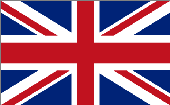Northwest Horticultural Council
Export Manual
GREAT BRITAIN (England, Scotland, and Wales)
 Capital: London
Capital: LondonPopulation: 65,931,856 (2024)
Currency: Pound sterling
Official Language(s): English
As of January 1, 2021, following the United Kingdom’s exit from the European Union, Great Britain (England, Scotland, and Wales) began establishing their own maximum reside limits (MRLs) and trade regulatory regime. Northern Ireland, while still part of the United Kingdom, continues to follow EU regulations.
I. CHEMICAL MAXIMUM RESIDUE LEVELS (MRLs)
Click on the above link for a list of chemical MRLs.
II. CHEMICALS AND ADDITIVE INFORMATION
A. Chemical residue standards:
Great Britain will set maximum residue levels (MRLs) based on its own assessments. EU MRLs will continue to be valid, however, until updates are made.
Additional details are available here.
B. Monitoring chemical residues:
The United Kingdom actively monitors pesticide levels.
C. Restrictions on use of waxes:
Great Britain permits the use of white beeswax, yellow beeswax, carnauba wax, and shellac on apples and pears.
Morpholine is not allowed for use as an additive to waxes or other food coatings. There is active enforcement of this prohibition.
III. ORGANIC FRUIT REGULATIONS
The United States has an equivalence agreement with the UK (including Northern Ireland). Organic products certified to either USDA or UK organic standards may be labelled and sold as organic if they meet the terms of the agreement. A paper Certificate of Inspection from a USDA accredited certifying agent is required prior to shipping. More information from USDA is available here.
IV. TARIFFS
Apples:
January 1 through March 31: 4 percent
April 1 through July 31: 0 percent
August 1 through December 31: 8 percent
Pears:
January 1 through March 31: 8 percent
April 1 through July 31: 0 percent
August 1 through December 31: 0 percent
Cherries:
June 16 through July 15: 6 percent
July 16 through June 15: 12 percent
V. NON-TARIFF BARRIERS
A. Labeling requirements:
The following information from the Horticultural Marketing Inspectorate (HMI) should be printed on the carton end panel.
1. Identification – The name and address of the packer and/or shipper. HMI indicated that current industry practice of printing the city, state, and zip code of the packer and/or shipper is considered a minimum requirement. Industry was urged to also include the street address on the carton.
2. Nature of produce – Product name if the contents are not visible from the outside. The name of the variety is also required for apples and pears. It is optional for cherries.
3. Origin of produce – Country of origin.
4. Commercial specifications – The quality may be indicated by specifying Category 1, Cat. 1, Class 1, or Class I or Category/Cat./Class 2 or II as appropriate. Given the possibility that other EU member countries may interpret the regulation in a different manner, the NHC recommends that industry print Class I (or other appropriate Class) on each carton. The size, or for fruit packed in layers the numbers of units, must also be specified.
B. Licenses and quotas:
Additional details will be provided as they become available.
C. Currency Issues:
None.
D. Pest and plant disease restrictions:
A phytosanitary certificate is required.
Currently, Great Britain will continue to follow EU requirements. Going forward, those requirements will be updated as Great Britain develops their own changes.
EU member countries are required to inspect 100 percent of imported consignments of fresh plant products upon arrival unless the consignments qualify for reduced inspection levels.
100 percent of the pear consignments imported from the U.S. must be inspected.
35 percent of the U.S. cherry consignments must be inspected. Each EU Member State may inspect between 35 and 100 percent of cherry consignments imported from the U.S.
15 percent of the U.S. apple consignments must be inspected. Each EU Member State may inspect between 15 and 100 percent of the apple consignments imported from the U.S.
Harmonized EU-wide plant health regulations are in place. Please refer to the EU page for specific restrictions which apply to all EU member countries.
E. Other trade restrictions:
Shipments of apples, cherries, and pears require pre-notification. The UK has a system (called PEACH) to enable importers to notify inspection authorities of shipment arrival. More information is available here.
The UK has announced they will be upgrading and replacing PEACH in 2021. Shippers who are registered with PEACH will be contacted to register for the new system when the changeover occurs. PEACH should be used until that changeover occurs.
VI. MARKETING REPRESENTATIVES FOR PACIFIC NORTHWEST TREE FRUIT INDUSTRY:
Washington Apple Commission, Northwest Cherry Growers/Washington State Fruit Commission:
George Smith
Midsummer Marketing
Hertfordshire, UK
Voice: 011-440-1727-862074
E-mail: george@midsummermarketing.com
VII. OTHER RESOURCE LINKS:
Governmental:
United States:
United Kingdom:
Private:

